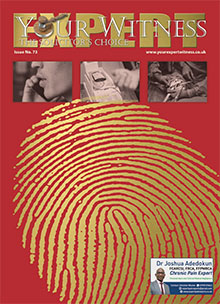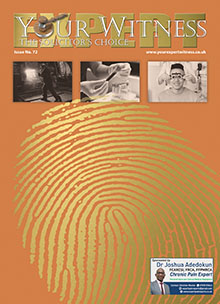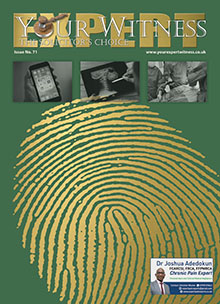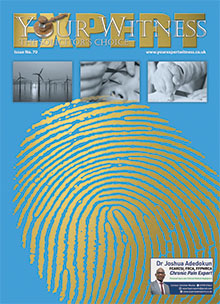The Faculty of Forensic and Legal Medicine of the Royal College of Physicians was inaugurated in 2006 with two main aims:
- To promote for the public benefit the advancement of education and knowledge in the field of forensic and legal medicine. To develop and maintain for the public benefit the good practice of forensic and legal medicine by ensuring the highest professional standards of competence and ethical integrity.
- To establish a training pathway in forensic and legal medicine and achieve specialist recognition of the specialty. To act as an authoritative body for the purpose of consultation in matters of educational or public interest concerning forensic and legal medicine.
Many forensic practitioners saw the formation of the faculty as the first step in the process of recognising forensic medicine as a distinct specialty. The contracting out of forensic medical services by police forces, most recently the Greater Manchester Police, appears to be the greatest threat to the young faculty, and most importantly its aspirations to raise the standards practice of its membership and acquisition of specialty status.
The practice of some areas of forensic medicine is perceived as requiring special knowledge or skills and in the case of sexual assault, because of the seriousness of the crime and the high attrition rate, there have been great efforts to improve the effectiveness of the forensic medical service.
Clearly it is essential that victims of sexual assault receive appropriately sensitive management; however the interests of justice demand that evidence gathering is reliable. Forensic practitioners working in sexual assault referral centres are specially trained to understand normal anatomy, recognise injury and to collect forensic samples.
Traditionally, doctors working for the police have a background in general practice, much of the care of detainees in custody demand the skills of a general medical practitioner. The interests of justice demand that the medical needs of all persons coming into contact with the criminal justice system are managed by persons trained in forensic medicine because those interests extend beyond meeting the medical needs of detainees to gathering evidence. From the inception of the concept of forensic medicine in the UK, the emphasis of forensics in the medical undergraduate curriculum has lagged behind that of our continental and, more recently, Australasian colleagues.
The lack of formal training sometimes results in doctors using medical terms in the vernacular, for example an injury might be described as an abrasion (when the skin is damaged through contact with a hard surface) or a laceration (when the skin splits as the result of impact) rather than an incised wound as might occur when the skin has been cut by an object with a sharp edge, for example during a glassing. Similarly, a forensically trained doctor should be aware what happens to a bruise over time and not overrely on colour change in estimating the age of a bruise.
Placing nurses in custody suites has the advantage that the health of detainees can be monitored closely, but that increased level of security could lead to detainees being managed in custody when under the old system they might have been transferred to secondary care. The placement of nurses in custody could also mean that the experience gained by doctors working in custody units may be lost, leading to an erosion of knowledge that would otherwise be available to investigators of incidents or deaths in custody.
Solicitors and other legal personnel such as crown prosecutors will be familiar with the Section 9 statements (s9 Criminal Justice Act 1967) adduced by doctors working in custody. Many of those doctors can and should be writing expert witness statements.
Specific training as an expert witness is available from providers such as Bond Solon, whose training is validated by Cardiff University, but specialist training should have prepared doctors working in forensic medicine to understand the role of the expert witness. Consequently, the ranks of forensic practitioners can provide a cadre of medical experts that can support the requirements of lawyers working in the criminal justice system.



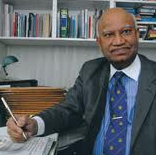 “Speculate before you accumulate. I am a long term regular writer and advertiser in 'Your Expert Witness - the Solicitor’s Choice'. This investment pays me substantive dividends; I get more Expert Witness work with every issue. Not only solicitors and barristers but also judges seem to read it. It is a win-win situation. Success breeds success; I must continue to write and advertise.”
“Speculate before you accumulate. I am a long term regular writer and advertiser in 'Your Expert Witness - the Solicitor’s Choice'. This investment pays me substantive dividends; I get more Expert Witness work with every issue. Not only solicitors and barristers but also judges seem to read it. It is a win-win situation. Success breeds success; I must continue to write and advertise.”












